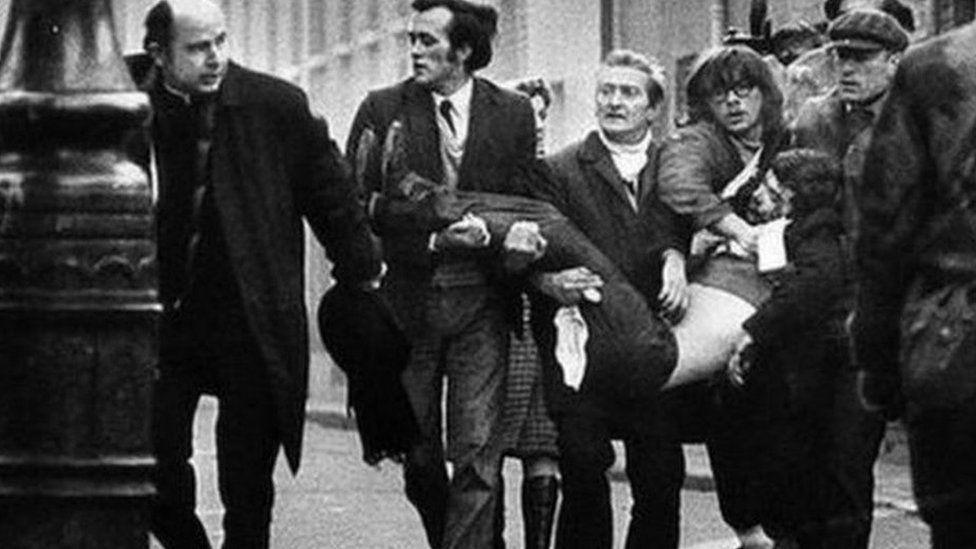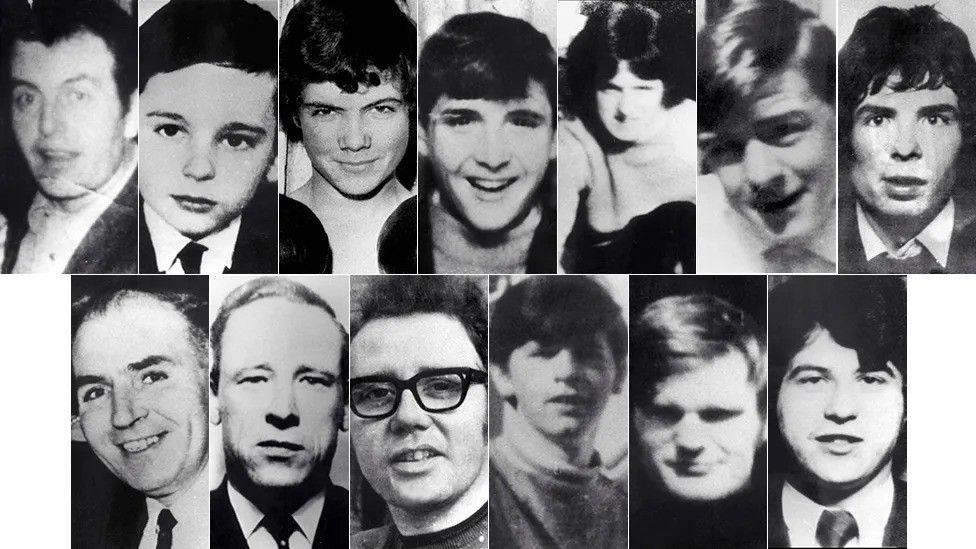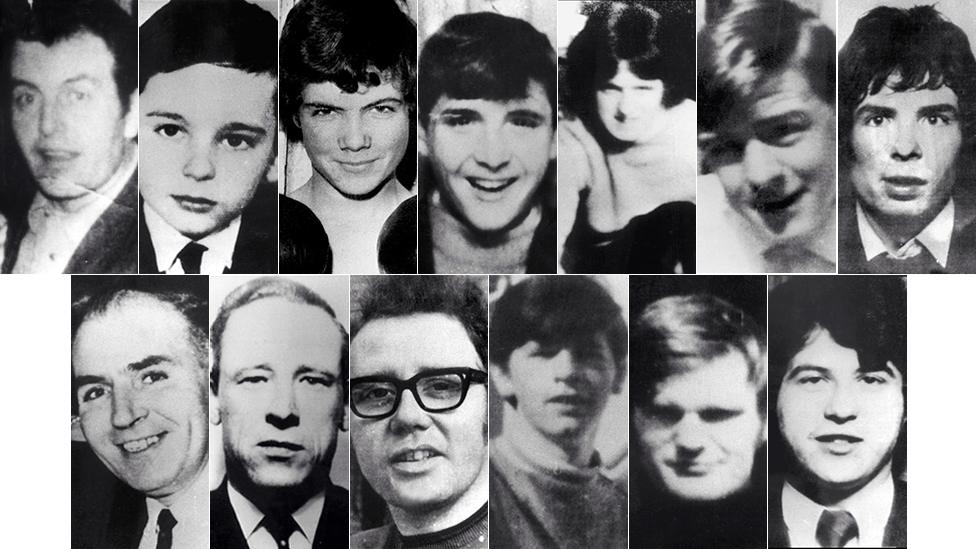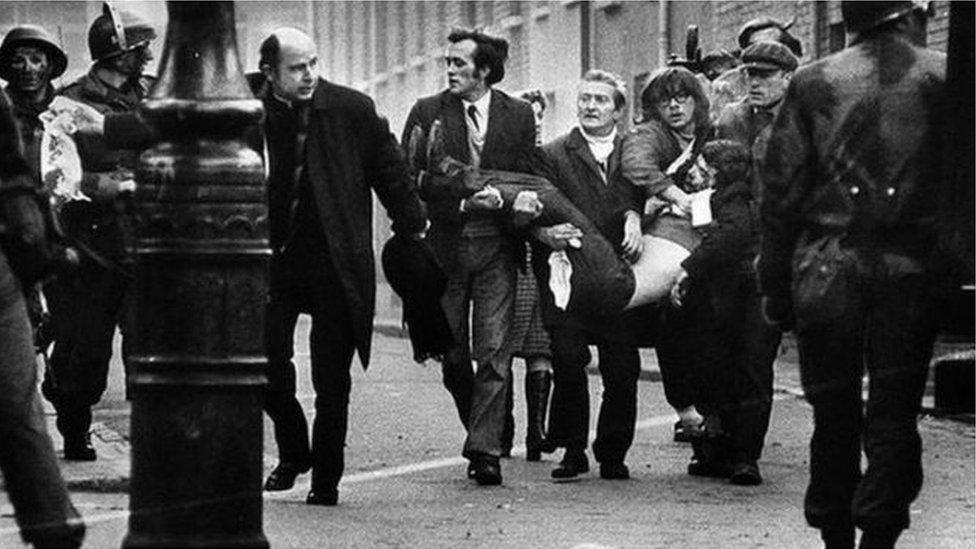Bloody Sunday perjury decision 'at advanced stage'

Thirteen people were killed and 15 wounded on Bloody Sunday
- Published
A decision on whether 15 former soldiers and an alleged IRA member should be prosecuted for perjury over Bloody Sunday is at an advanced stage, BBC News NI understands.
Thirteen people were shot dead when soldiers opened fire on marchers during a civil rights march in Londonderry on 30 January 1972.
A further 15 people were injured.
Solicitor Ciarán Shiels, who represents some of the victims' relatives, said families had been informed that a decision was expected on 18 April.

The victims, top row (l to r): Patrick Doherty, Gerald Donaghey, John Duddy, Hugh Gilmour, Michael Kelly, Michael McDaid and Kevin McElhinney. Bottom row : Bernard McGuigan, Gerard McKinney, William McKinney, William Nash, James Wray and John Young
A long-running inquiry into the killings, headed by judge Lord Saville, found none of the casualties were posing a threat or doing anything that would justify their shooting.
Then prime minister David Cameron apologised for the killings, describing them as "unjustified and unjustifiable".
The Police Service of Northern Ireland (PSNI) then began a murder investigation after the Saville report was released in 2010.
In 2019, the Public Prosecution Service announced that one former paratrooper, identified as Soldier F, would be prosecuted for murder and attempted murder.
He has since been returned for trial.
At that time the PPS also said consideration would be given to allegations of perjury against suspects reported by the police.
The Police Service of Northern Ireland (PSNI) said following the publication of the Saville report an “investigation commenced into the actions of a range of people involved on Bloody Sunday”.
A PSNI spokeswoman said that a “lengthy and complex” investigation “sought to painstakingly identify tangible and admissible evidence, evidence which was subsequently submitted in its entirety to the Public Prosecution Service”.
She added: “A number of police files are currently under consideration by the Public Prosecution Service, therefore it would not be appropriate to comment further at this time."
Related topics
- Published2 July 2021

